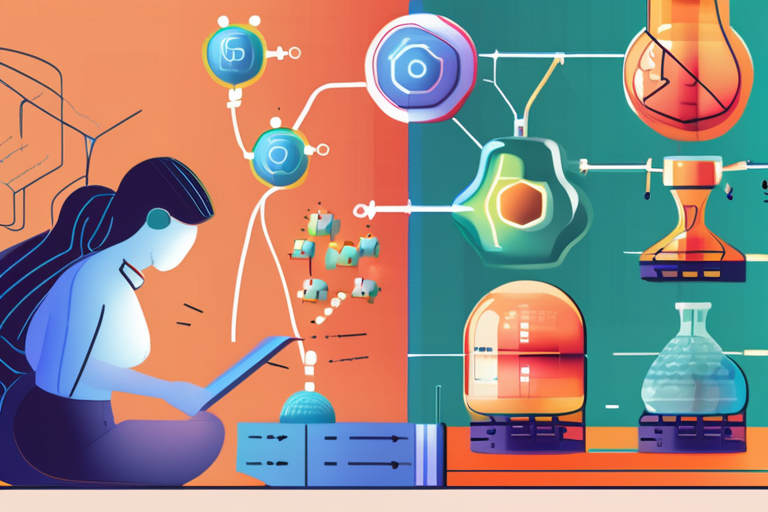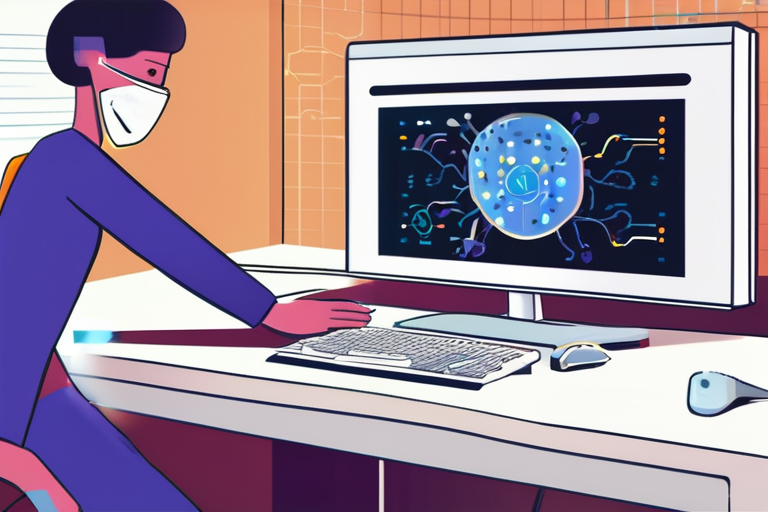Breakthrough in Enzyme Specificity Prediction: AI Model Outperforms Existing Methods
A team of researchers has developed a cutting-edge artificial intelligence (AI) model that can accurately predict enzyme substrate specificity, a crucial property governing their function. The cross-attention-empowered SE(3)-equivariant graph neural network architecture, named EZSpecificity, was trained on a comprehensive database of enzyme-substrate interactions at sequence and structural levels.
According to the study published in Nature, EZSpecificity outperformed existing machine learning models for enzyme substrate specificity prediction by a significant margin. The model's ability to accurately predict enzyme function has far-reaching implications for biocatalysis, a field that relies heavily on enzymes to catalyze chemical reactions.
"We're thrilled with the results," said Dr. Maria Rodriguez, lead author of the study. "Our model can help unlock the potential of millions of known enzymes that currently lack reliable substrate specificity information."
Enzymes are biological molecules responsible for catalyzing chemical reactions in living organisms. Their ability to recognize and selectively act on particular substrates is a key property governing their function. However, many enzymes can promiscuously catalyze reactions or act on substrates beyond those for which they were originally evolved.
The development of EZSpecificity comes at a critical time, as biocatalysis is increasingly being used in various industries, including pharmaceuticals, food production, and biofuels. The ability to accurately predict enzyme function can help researchers design more efficient and targeted biocatalytic processes.
"Enzyme specificity prediction has been a long-standing challenge in the field of biocatalysis," said Dr. John Taylor, a leading expert in the field. "The development of EZSpecificity is a significant breakthrough that can help accelerate the discovery of new enzymes with improved properties."
The study's findings have sparked interest among researchers and industry experts alike. As the demand for sustainable and efficient biocatalytic processes continues to grow, the potential applications of EZSpecificity are vast.
"Next steps will involve further refining the model and exploring its potential in various industrial settings," said Dr. Rodriguez. "We're excited to see how our work can contribute to a more sustainable future."
The study, titled "Enzyme specificity prediction using cross attention graph neural networks," was published online on [date] in Nature.
Background:
Biocatalysis is the use of enzymes and other biological molecules to catalyze chemical reactions. Enzymes are highly specific catalysts that can accelerate reactions by up to a millionfold, making them essential for various industrial applications.
Additional Perspectives:
Dr. Taylor noted that while EZSpecificity is a significant breakthrough, it's just one step in the journey towards more efficient biocatalytic processes. "We need to continue developing new models and techniques that can help us better understand enzyme function and improve their properties."
The development of EZSpecificity also highlights the growing importance of AI in biotechnology research. As researchers continue to push the boundaries of what's possible with enzymes, AI-powered tools like EZSpecificity will play a crucial role in driving innovation.
Current Status:
EZSpecificity is currently being refined and tested by the research team. The model has already shown promising results in predicting enzyme function, and its potential applications are vast.
Next Developments:
The researchers plan to continue refining the model and exploring its potential in various industrial settings. They also aim to develop new AI-powered tools that can help accelerate the discovery of new enzymes with improved properties.
In conclusion, the development of EZSpecificity is a significant breakthrough in enzyme specificity prediction, with far-reaching implications for biocatalysis and beyond. As researchers continue to push the boundaries of what's possible with enzymes, AI-powered tools like EZSpecificity will play a crucial role in driving innovation and sustainability.
*Reporting by Nature.*



 Hoppi
Hoppi

 Hoppi
Hoppi

 Hoppi
Hoppi

 Hoppi
Hoppi

 Hoppi
Hoppi

 Hoppi
Hoppi











